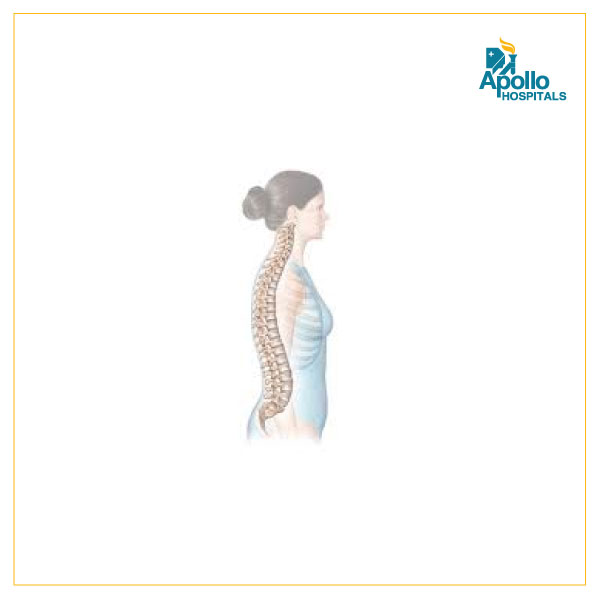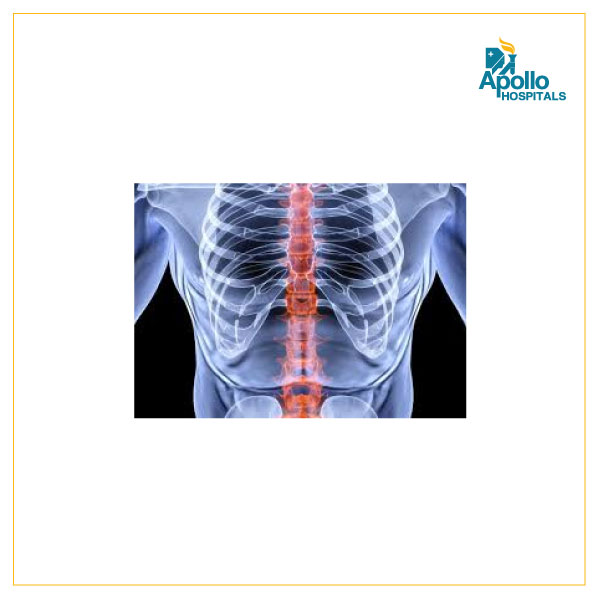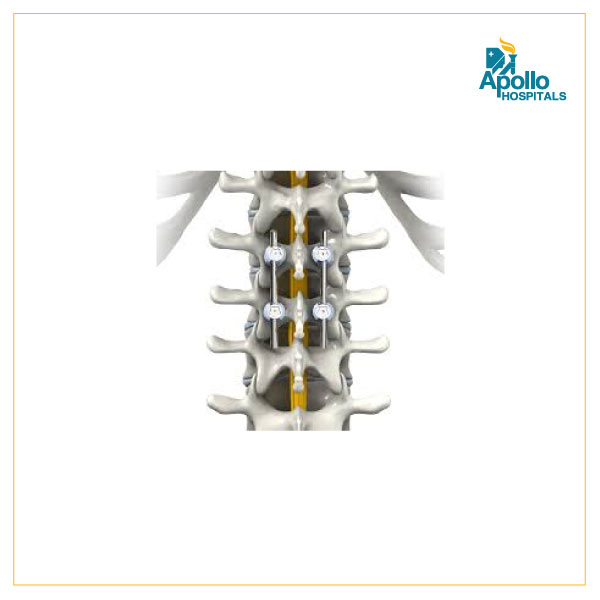- 1353 Views
- Apollo Hospital Mumbai
- January 22, 2021
FAQ – Knee replacement surgery
FAQ – Knee replacement surgery The knee joint is the largest and one of the most complex joints in the body. It is made up of the lower end of the thighbone (femur) and the upper end of the leg bone (tibia) along with the kneecap (patella). The two ends of the thigh and leg bones glide smoothly on
- 1099 Views
- Apollo Hospital Mumbai
- January 21, 2021
Spinal fusion surgery: Back Pain Management
Spinal fusion surgery: Back Pain Management Experiencing persistent lower back pain after Spinal Fusion surgery, could most likely be due to Failed Back Surgery Syndrome. Your doctor would suggest a reasonable amount of time (from a few weeks to sometimes months) to understand if a surgery has worked in your favour. In most cases the pain gets better with time. However, if the pain persists, your treating doctor would
- 1172 Views
- Apollo Hospital Mumbai
- January 21, 2021
Spinal surgery: Everything you should know
Spinal surgery: Everything you should know Spine surgery has evolved significantly in the last two to three decades. Surgery for spinal issues is much safer today because of emergence of new techniques and technological upgrades making it safer. The common spine surgeries are: 1. Spinal decompression and/ or a discectomy 2. Stabilization surgery / Spinal
- 1289 Views
- Apollo Hospital Mumbai
- January 21, 2021
Mobility after scoliosis correction
Mobility after scoliosis correction Spinal Fusion surgery by default is meant to take away the mobility in exchange for a better position or stability of the spine. The fused part of the spine cannot be expected to be mobile. However, there are various ways to preserve spinal mobility in children affected by scoliosis. The scoliosis deformity surgeries have advanced significantly. The major mobile parts of
- 1126 Views
- Apollo Hospital Mumbai
- January 21, 2021
Risks associated with Spinal Decompression Surgery
Risks associated with Spinal Decompression Surgery All surgical risks are mainly dependent on three factors – the medical condition of patient, the severity of the disease, and the procedure being performed. Each of these factors attribute to varying degrees of risks, which are unique to every patient. The risks of spinal decompression surgery can also be understood better if we look at them in three separate parts – the risk of anaesthesia, the risks associated with the procedure being performed and the risks associated with comorbidities. The anaesthetic risk is
- 1122 Views
- Apollo Hospital Mumbai
- January 21, 2021
Hepatitis: Elimination through Education
Hepatitis: Elimination through Education Hepatitis is defined as an inflammation of the liver, which in most cases is caused by hepatitis viruses A, B, C, D and E among other factors. According to World Health Organisation, there are 325 million people who are suffering from hepatitis B and C with over 1.3 million fatalities annually
- 1265 Views
- Apollo Hospital Mumbai
- December 28, 2020
Cervical Cancer – Frequently Asked Questions
Cervical Cancer – Frequently Asked Questions What happens to your body when you have cervical cancer? Many women with cervical cancer don’t realize they have the disease early on, because it usually doesn’t cause symptoms if the cervical cancer is in early stage. Sometimes women may experience abnormal vaginal bleeding, postictal bleeding (bleeding after sexual
- 984 Views
- Apollo Hospital Mumbai
- December 28, 2020
Paediatric Oncology
Paediatric Oncology What is Paediatric Oncology? Paediatric Oncology is the branch of medicine that deals with cancers in babies, children and teenagers. As with adult cancers, there are many different types of paediatric cancers, requiring different courses of treatments. Children’s growth, development, dynamic nutritional status and immature organ function requires dose precision and monitoring for
- 946 Views
- Apollo Hospital Mumbai
- December 28, 2020
Ovarian cancer – Frequently Asked Questions II
Ovarian cancer – Frequently Asked Questions II Who is at high risk for ovarian cancer? Age Older women have a higher risk for ovarian cancer than younger women. Ovarian cancer usually occurs after menopause, although it can develop in women of all ages. Most women diagnosed with ovarian cancer are older than age 55. Family
- 991 Views
- Apollo Hospital Mumbai
- December 28, 2020
Ovarian cancer – Frequently Asked Questions I
Ovarian cancer – Frequently Asked Questions I What is Ovarian Cancer? Ovarian cancer is a type of cancer that begins in the ovaries. The female reproductive system contains two ovaries, one on each side of the uterus.The ovaries — each about the size of an almond — produce eggs (ova) as well as the hormones
- October 22, 2024
World Stroke Day: Raising Awareness and Saving Lives
- October 22, 2024
Robotic Surgery in Gynecology: A Revolution in Women’s Health
- October 22, 2024
Robotic Surgery in General Surgery
- October 22, 2024
Pediatric Neurosurgery: Complexities of Brain Tumors in Children
- October 22, 2024
LGBTQ+ and Cancer: Challenges and Support
- Bone Marrow Transplant3
- Cardiac sciences44
- Child Care7
- Clinical Excellence33
- Cosmetology2
- COVID-199
- Diseases4
- Emergency8
- Emergency10
- Endocrinology1
- ENT5
- Fetal Medicine1
- Gastroenterology6
- General Medicine9
- General Surgery3
- Genomic Medicine2
- Gynecology1
- Health14
- Hematology2
- Kidney Transplant5
- Kidney Transplant2
- Liver Transplant6
- Neonatology1
- Nephrology2
- Nephrology & transplant1
- Nephrology & Urology4
- Neurosciences1
- Neurosciences20
- Nutrition/Diet1
- Obstetrics & Gynecology9
- Obstetrics & Gynecology4
- Oncology92
- Oncology3
- Ophthalmology1
- Orthopedic13
- Patient Speak1
- Pediatric Surgery3
- physiotherapy2
- Psychologist2
- Pulmonology1
- Rheumatology1
- Robotic Suregry1
- Robotic Surgery11
- Spine1
- Uncategorized111
- Women Care5









